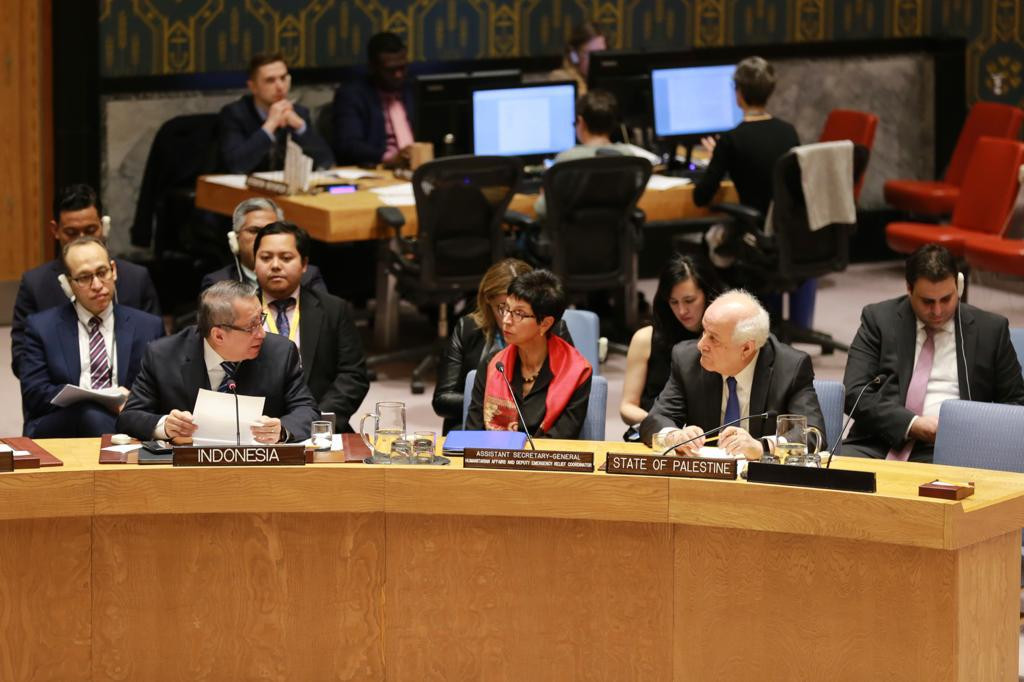Popular Reads
Top Results
Can't find what you're looking for?
View all search resultsPopular Reads
Top Results
Can't find what you're looking for?
View all search resultsPost-pandemic foreign policy must change, former minister says
Former top Indonesian diplomat Hassan Wirajuda has sparked a debate about the direction of Indonesian foreign policy as the rules-based international order comes under increasing pressure for its management of the pandemic and the ensuing economic crisis.
Change text size
Gift Premium Articles
to Anyone
A
former top diplomat has sparked a debate about the direction of Indonesian foreign policy as the rules-based international order comes under increasing pressure for its management of the pandemic and the ensuing economic crisis.
Former foreign minister Hassan Wirajuda called on the nation to pivot away from multilateralism and focus its efforts on bilateral and regional diplomacy, after what he said was a lack of leadership by the United Nations and international agencies.
Hassan’s appeal touches on criticism of the UN’s slow COVID-19 response, as the organization and its related bodies have been embroiled in the geopolitical rivalry between China and the United States.
“The United Nations and international organizations are no longer effective,” Hassan declared as he criticized the World Health Organization for allowing an attack on its credibility.
Read also: The strange war against the WHO amid its battle with COVID-19
He said that over the past six months, the pandemic had managed to speed up the end of globalization, evident in the way countries were becoming more dependent on their own national responses and bilateral cooperation initiatives and less on the multilateral system.
Hassan took Indonesia’s cooperation with South Korea on the production of face masks and personal protective equipment as an example of the current development.
“Understanding the great changes in the global and regional landscape, both in geopolitical and geoeconomic [terms], it is necessary to refocus Indonesian diplomacy after the pandemic,” he said during an online discussion on Wednesday.
Read also: Insight: COVID-19: The challenge to multilateralism and regionalism
Hassan said that while the 1945 Constitution maintained that Indonesia had to contribute to world peace, the nation should also be realistic about the fact that efforts to restructure the world order had not been successful.
Indonesia’s foreign policy mission was formed on the basis of an excerpt from the Preamble of the Constitution, in which the formation of the government was partly predicated on the goal of establishing “a world order based on freedom, abiding peace and social justice”.
Going forward, bilateral diplomacy should strive for tangible and measurable targets in order to strengthen “national post-pandemic independence” in a range of areas as new global trends emerge, said the former minister, who is credited with preparing the current cohort of senior Foreign Ministry officials.
He also said that regional diplomacy was needed to help protect Indonesia “from our existential threat as a nation state” and that the nation’s diplomacy must be more grounded.
Hassan’s criticism of the global order comes ahead of the UN’s 75th anniversary and amid a physical shutdown of the organization as a result of the pandemic. This has limited diplomatic efforts and helped embolden nations that are skeptical of the body’s professed multilateral ideals.
Hasan’s comments also follow Indonesia’s latest forays into UN leadership. The country has secured a seat on the Economic and Social Council (ECOSOC) and serves on the Security Council and the Human Rights Commission.
Read also: Indonesia secures seat on United Nations Economic and Social Council
On many occasions, the Foreign Ministry, led by Retno Marsudi, has insisted upon the need to maintain the multilateral system to ensure global access to vaccines, medical supplies and equipment and to mitigate the economic impacts of the outbreak.
Retno again defended multilateralism on Thursday at a virtual meeting between ASEAN and Russia, saying the global fight against COVID-19 should be seized as an opportunity to strengthen collaboration among countries.
She raised the issue of eroding trust among nations and stressed the need for all parties to set aside their differences.
“Indonesia wants to see multilateralism work in a more effective way – a multilateralism that puts forward collective interests and prevents the mighty from taking everything,” the minister said.
Read also: Indonesia stresses need for multilateralism in ASEAN-Russia meeting
Separately, Deputy Foreign Minister Mahendra Siregar acknowledged growing concerns that the global supply chain was becoming too dependent on a very limited number of countries.
Such dependency had become an unacceptable risk, he said, as the world had witnessed scarcity in medical supplies and equipment earlier this year because many of the raw materials for mass production came from only one or two countries.
“This can be interpreted as a nationalist or protectionist attitude, but I see it as a consequence of, and the lessons learned from, what we have been through over the last few months,” Mahendra said during a public lecture on Wednesday.
Indonesia recorded a record surge in COVID-19 cases on Thursday, with 1,331 new confirmed cases, a day after the country officially surpassed Singapore, in gross terms, with the highest number of recorded infections in Southeast Asia. Indonesia’s population is about 48 times larger than Singapore’s.
Read also: Indonesia records another record number of new COVID-19 cases
The foreign service has been actively involved in global health initiatives and in forging bilateral deals, which observers say have helped ease the burden on the state’s pandemic response.
“We see all of this disruption not as a source of nervousness but as an opportunity. As some wise people have said, ‘We should never waste a good crisis,’” Mahendra said.










